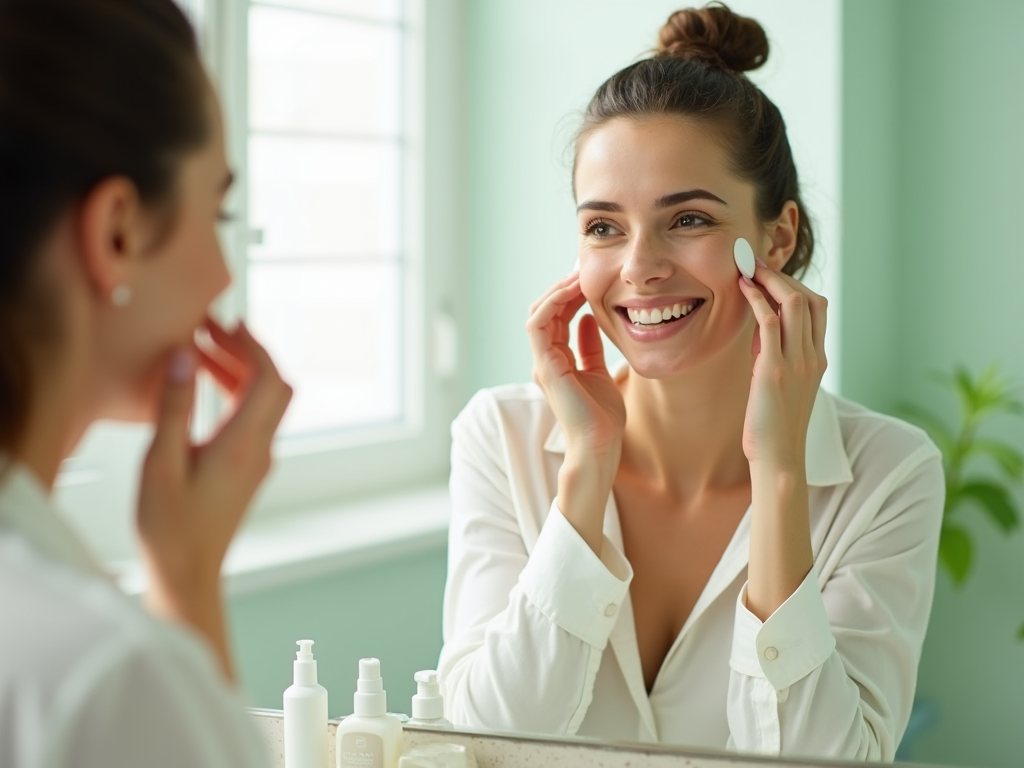Your skin is more than just a protective barrier; it’s a complex organ packed with surprises. In this article, we will delve into five surprising facts about skin that you may not have known. Understanding these aspects can help you take better care of your skin and appreciate its role in your overall health.
1. Your Skin Is Your Largest Organ

Did you know that your skin is not just a covering, but the largest organ of your body? Covering approximately 20 square feet in an adult, skin plays essential roles beyond mere protection. Here are some surprising insights about your skin:
- Barrier Function: It protects your internal organs from external threats like bacteria and viruses.
- Temperature Regulation: Skin helps regulate body temperature through sweat and blood flow adjustments.
- Sensory Perception: It houses a variety of nerve endings that make you feel touch, heat, and cold.
- Vitamin D Production: Your skin plays a pivotal role in synthesizing Vitamin D when exposed to sunlight.
- Immune Defense: Skin cells contribute to the immune response, crucial for fighting infections.
This multifunctional nature of skin underscores its importance in maintaining overall health, making it imperative to care for it properly.
2. Skin Regeneration Takes Time

Another fascinating fact about skin is its ability to regenerate. The process of skin renewal is continuous, and it typically takes about 27 days for skin cells to turn over completely. Here are some details about the regeneration process:
- Cell Turnover: New skin cells are formed in the lower layers and gradually move to the surface, replacing dead cells.
- Age Factor: As you age, this process slows down, taking up to 40 days or more for older individuals.
- Impact of Skincare: Exfoliation can enhance cell turnover, making the skin appear more youthful.
- Healing Time: Cuts or wounds take longer to heal as you age due to slower regeneration.
This insight highlights the importance of patience in skin care routines and keeping in mind that visible changes may take time.
3. Your Skin Can Reflect Your Internal Health
Skin is often referred to as a mirror into your overall health. Various internal conditions can manifest as skin issues, making it essential to pay attention to your body. Here are some ways that internal health can affect your skin:
- Diet: Poor nutrition can lead to dull skin and increased acne.
- Hydration: Insufficient water intake can cause dryness and flakiness.
- Stress: Stress can lead to skin conditions such as eczema or psoriasis.
- Hormonal Changes: Hormonal fluctuations can cause breakouts or pigmentation changes.
- Medical Conditions: Diseases like diabetes or liver issues can cause specific skin symptoms.
Recognizing these connections can lead to better self-care practices and earlier identification of potential health issues.
Every individual has a unique skin color and type, influenced by various factors such as genetics, ethnicity, and environmental exposure. Here is some important information about skin diversity:
- Genetics: Your ancestors’ heritage significantly affects your skin’s melanin production, determining its color.
- Skin Types: Skin can be categorized into types such as dry, oily, sensitive, or combination, each requiring different care.
- Environmental Factors: Sun exposure, pollution, and climate can change how your skin behaves over time.
- Skin Care Products: Formulas should be tailored to your unique skin type to be effective.
- Common Misconceptions: Beliefs about ‘universal skin care’ can lead to ineffective routines.
This diversity reinforces the need for personalized skin care approaches to achieve the healthiest and best-looking skin.
5. Skin Microbiome Is Essential
Your skin is home to trillions of microorganisms, including bacteria, fungi, and viruses, collectively known as your skin microbiome. These tiny organisms play a crucial role in maintaining skin health. Here’s why the microbiome matters:
- Barrier Protection: Good bacteria help protect against harmful pathogens.
- pH Balance: They contribute to maintaining skin’s acidic environment, crucial for barrier function.
- Inflammation Control: A balanced microbiome can reduce the risk of inflammatory skin conditions.
- Disruption Can Lead to Issues: Antibiotics and harsh skincare can disrupt your skin’s microbiome, leading to issues like acne or eczema.
- Future of Skincare: Research is increasingly focusing on probiotic-rich products for skin health.
Understanding the skin microbiome underscores the importance of gentle, balanced skincare that respects these natural inhabitants.
Conclusion
Skin is an extraordinary organ packed with surprises, from being the largest organ of your body to reflecting your internal health. Knowing these surprising facts can not only change how you perceive your skin but also inspire better care practices. Embracing the uniqueness of your skin color, type, and microbiome can lead to healthier skin in the long run.
Frequently Asked Questions
1. How often should I exfoliate my skin?
Exfoliating 1-2 times a week is usually sufficient for most skin types. However, listen to your skin; if it becomes irritated, reduce frequency.
2. Can diet really affect my skin’s appearance?
Yes, a balanced diet rich in vitamins, minerals, and hydration can greatly enhance your skin’s appearance and overall health.
3. What is the difference between skin types?
Skin types are generally categorized as dry, oily, combination, and sensitive, each requiring different products and care routines.
4. How can I maintain a healthy skin microbiome?
Use gentle skincare products, avoid excessive use of antibiotics, and incorporate probiotic-rich foods into your diet.
5. Is anti-aging skincare necessary for everyone?
While anti-aging products can benefit many, the necessity depends on individual skin type and concern. It’s always best to consult with a dermatologist for personalized advice.
